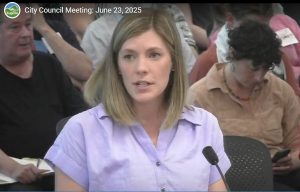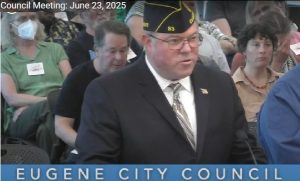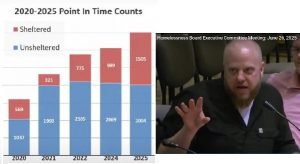Rep. Wilde: Oregon Democrats let biggest fundraisers decide party agenda in secret
4 min read
by Rep. Marty Wilde
State Representative, House District 11
“The deliberations of each house, of committees of each house or joint committees and of committees of the whole, shall be open.”
Oregon Constitution, Article IV, Section 14
Last summer, I left the House Democratic Caucus, the body of Democratic lawmakers that sets our legislative priorities and strategy. I could not continue to participate in a caucus that had stopped acting democratically. We had failed to set a positive example of transparency and engagement and stopped supporting laws that returned power to the people we represent. Instead, we let our partisan desire to maintain power override our duty to the people. We owe Oregonians transparency, accountability and support for their role in their own governance.
Since I joined the caucus in 2019 as a freshman legislator, it has become less and less democratic. My fellow Democratic lawmakers and I met privately each day during the legislative session. We debated proposals like the Student Success Act and public pension reform, and we did not even inform the public about the topics of our discussions and preemptive decisions. Our caucus expectation was that we would lock down support for every House election for speaker and speaker pro tem, the House rules, and every procedural vote, whether it was in the people’s interest or not.
Thank you for supporting
local civic journalism
Over time, we even stopped debating the issues, as caucuses became a forum for leadership to give orders to ensure the Democratic partisan agenda prevailed over the Republicans’ agenda, regardless of whether it was in the public interest. For instance, the former speaker did not consult with the caucus before making, or breaking, her deal with Republicans on redistricting. Perhaps worst of all, leadership positions were pay to play and filled based on success in fundraising, not merit or expertise. The House Democratic leaders even stopped telling the caucus members about their discussions. In effect, the content and direction of legislation for all of Oregon was decided by a group of 10 or fewer people picked by their ability to raise money, in secret.
We also stopped supporting democratic ideas. After 78% of voters approved campaign finance reform, we failed to pass a bill to implement it. We acquiesced in the blatant gerrymandering of legislative districts by the Oregon Senate. We did nothing to engage non-affiliated voters in primary elections. Campaign finance reform, nonpartisan redistricting and broader voter engagement in the primaries enjoy broad support in the electorate, but we refused to support them.
We stopped exercising meaningful oversight of the executive branch as well. A House proposal to add impeachment of executive officers to the Oregon Constitution passed in 2015 by a vote of 47-12. This year, it failed even to come to the floor, despite the current House speaker’s vote for it in 2015. The caucus wouldn’t even open a public debate on whether to refer it to voters, despite overwhelming public support for the concept. I could not remain in a caucus that had stopped acting democratically.
We owe it to Oregonians to do better. I know our new speaker, Rep. Dan Rayfield of Corvallis, supports a more democratic approach, as he has supported bills for campaign finance reform and ranked choice voting in the past. Unfortunately, he has yet to give his values expression through democratic processes.
When he was asked recently why a popular Republican proposal to stop gerrymandering would not pass this session, his response, according to the Oregon Capitol Chronicle was that we had not had a “robust conversation” about the topic. We can’t have a robust conversation publicly unless we give a bill a hearing. His appointed chair for the House Rules Committee refused to schedule the bill for a public hearing. If he meant that we did not have private conversations, he should recall that transparency should be one of Democrats’ fundamental values.
Similarly, although I twice brokered bipartisan agreements on modest rebalancing of emergency powers between the executive and legislative branches–something voters on both sides of the aisle support–the caucus leadership refused even to hear the bills.
House Republicans have offered several olive branches, in the form of bill concepts that Democrats have historically supported, such as nonpartisan redistricting and executive accountability. Perhaps Republicans wouldn’t support the bills if they were in the majority, but that makes it even more important to lock in progress now for a more democratic Oregon in the future. It is not too late for House Democrats to return to democratic values. We must again put our duty to the people before our loyalty to our party. When the House Democratic Caucus returns to conducting public’s business publicly, insisting on accountability, and supporting democracy, we will all benefit.
I’m still a Democrat. I’m just waiting for my colleagues to remember that they are too.



